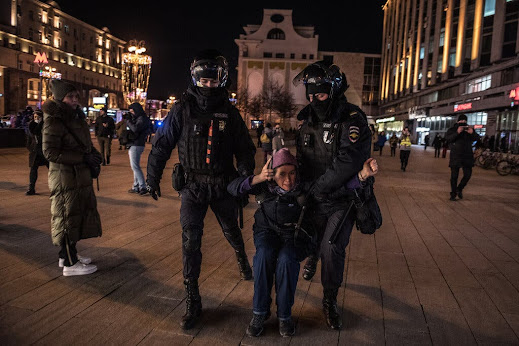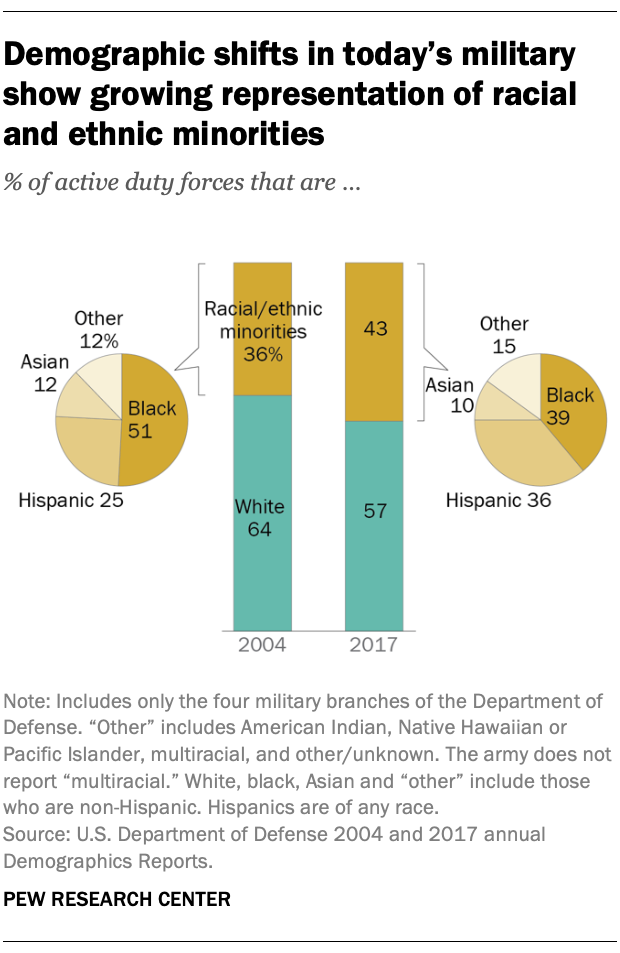Pragmatic politics focused on the public interest for those uncomfortable with America's two-party system and its way of doing politics. Considering the interface of politics with psychology, cognitive science, social behavior, morality and history.
Etiquette
Saturday, March 5, 2022
Former Attorney General William Barr explains how Trump fired him
The Russian public comments on war, or not
Friday, March 4, 2022
Russia invasion update
MOSCOW — Russian President Vladimir Putin called Friday for the “normalization” of relations with other states, saying Moscow has “absolutely no ill intentions with regard to our neighbors.” .... He said Russia saw no need to aggravate tensions with other countries, claiming that Moscow’s actions in Ukraine came only “in response to unfriendly actions toward Russia.”
NEAR THE UKRAINE BORDER — Javelin antitank missiles, the American-made weapons that can destroy Russian tanks, are stacked in steel racks awaiting quick shipment into Ukraine. A giant C-17 transport is parked on a nearby runway.
This is what American and NATO support for Ukraine looks like. Every day, 14 widebody jets are landing here to deliver Javelins, Stinger antiaircraft missiles and other weapons for the Ukrainians. A half-dozen of these daily arrivals are American planes.Watching the Javelins move toward the battlefield Friday is the clearest demonstration of the delicate balance that the United States and its allies are trying to strike in the Ukraine war. They are rushing deliveries of weapons to help Ukraine defend itself against Russian attackers. But U.S. and NATO troops are staying safely across the border, determined to avoid a direct military confrontation with Russia that could turn this into a cataclysmic world war.
On Thursday, the pillars of Russia’s independent broadcast media collapsed under pressure from the state. Echo of Moscow, the freewheeling radio station founded by Soviet dissidents in 1990 and that symbolized Russia’s new freedoms, was “liquidated” by its board. TV Rain, the youthful independent television station that calls itself “the optimistic channel” said it would suspend operations indefinitely.
And Dmitri A. Muratov, the journalist who shared the Nobel Peace Prize last year, said that his newspaper Novaya Gazeta, which survived the murders of six of its journalists, could be on the verge of shutting down as well.
“Everything that’s not propaganda is being eliminated,” Mr. Muratov said.
Precipitating the outlets’ demise were plans by the Russian Parliament to take up legislation on Friday that would make news considered “fakes” about Russia’s war in Ukraine punishable by yearslong prison terms. The Russian authorities have already made it clear that the very act of calling it a “war” — the Kremlin prefers the term “special military operation” — is considered disinformation.
“We’re going to punish those who spread panic using fakes by up to 15 years,” a senior lawmaker, Sholban Kara-ool, said on Thursday. During World War II, he said, such people “were shot on the spot.”
Mr. Putin appeared unbowed by the crisis and the Western furor. He told President Emmanuel Macron of France in a phone call that his aim of securing “the demilitarization and neutral status of Ukraine” would be “achieved no matter what,” according to the Kremlin.
Yet as the world faces one of its most serious geopolitical crises since the end of the Cold War, China let down its digital defenses and allowed Kremlin’s propaganda machine to help shape public perception of the war. No wonder the Chinese internet is overwhelmingly pro-Russia, pro-war and pro-Putin.If China wants to remain officially ambiguous about whether it supports Vladimir V. Putin’s war — refusing to call it an invasion and abstaining from a U.N. vote to condemn the invasion — its state-controlled media nonetheless makes very clear where China stands.The China-Russia information alliance is forged over a shared worldview of two leaders, Xi Jinping and Vladimir V. Putin, who, out of deep distrust of the United States, are determined to challenge the West’s dominance in the competition for public opinion.
In a 2013 speech, Mr. Xi urged the country’s propaganda workers to enhance the country’s “international discourse power” under the notion of “telling China’s story well.” During a visit to RT’s headquarters in the same year, Mr. Putin said the network was created to “break the Anglo-Saxon monopoly on the global information streams.”
The message they are trying to drive home: Russia’s military actions are anti-West, anti-NATO expansion and anti-Nazi — thus justified and popular.
In China’s state media, there’s very little about the international condemnation of Russia; Ukraine’s success in the battle for public opinion, led by President Zelensky; or antiwar protests in Russia.
Thursday, March 3, 2022
Once again, shameless Republican hypocrisy
It’s a case of the pot calling the kettle dark.
Last week, on the very day President Biden announced his nomination of Ketanji Brown Jackson to the Supreme Court, Senate Republican leader Mitch McConnell (Ky.) issued a statement expressing his earnest concern that “Judge Jackson was the favored choice of far-left dark-money groups.”On Tuesday, McConnell repeated on the Senate floor that he is “troubled” by “the intensity of Judge Jackson’s far-left dark-money fan club.”
Even for McConnell, a five-time Olympic gold medalist in hypocrisy, this was special.
There is perhaps no human being more responsible for the tsunami of unlimited, unregulated “dark” money that has corrupted and consumed American politics than Addison Mitchell McConnell III. Nobody worked harder to thwart campaign finance limits and to block the disclosure of contributors’ names. One Nation, the dark-money group McConnell effectively controls with his former chief of staff at the helm, raised more than $172 million in 2020, according to a tax return obtained by Citizens for Responsibility and Ethics in Washington. (emphasis added)
Putin's war on Ukraine
“Nobody here trusted the Russians before and we certainly don’t trust them now,” said Mieczyslaw Zuk, a former Polish soldier who oversees the once top-secret nuclear site. The bunkers were abandoned by the Soviet military in 1990 as Moscow’s hegemony over East and Central Europe unraveled in what President Putin has described as “the greatest geopolitical catastrophe of the century.”
Now Eastern European countries fear a catastrophe of their own could be in the making, as Mr. Putin seeks to turn back the clock and reclaim Russia’s lost sphere of influence, perilously close to their frontiers. Even leaders in the region who have long supported Mr. Putin are sounding the alarm.
Warnings about Moscow’s intentions, often dismissed until last Thursday’s invasion of Ukraine as “Russophobia” by those without experience of living in proximity to Russia, are now widely accepted as prescient. And while there has been debate about whether efforts to expand NATO into the former Soviet bloc were a provocation to Mr. Putin, his assault on Ukraine has left countries that joined the American-led military alliance convinced they made the right decision.
Fear that Mr. Putin is capable of just about anything, even using nuclear weapons, is just “common sense,” said Toomas Ilves, a former president of Estonia.
Mr. Ilves announced this week on Twitter that he was “accepting apologies” for all the “patronizing nonsense from Western Europeans” who complained that “we Estonians were paranoid about Russian behavior.”
In a telephone interview, Mr. Ilves said he had not received any apologies yet but was gratified to see Russia’s “shills and useful idiots getting their comeuppance.”
Western Europeans who once scoffed at his dark view of Russia, he added, “have suddenly become East Europeans” in their fearful attitudes. “This past week marks the end of a 30-year-long error that we can all come together and sing kumbaya.”
A War the Kremlin Tried to Disguise Becomes a Hard Reality for Russians
Moscow posted a death toll [498 dead Russians] from its attack on Ukraine for the first time, and Russians who long avoided politics are now grappling with the fact that their country is fighting a deadly conflict.On Feb. 23, Razil Malikov, a tank driver in the Russian Army, called his family and said he would be home soon; his unit’s military drills in Crimea were just about wrapping up.
The next morning, Russia invaded Ukraine, and Mr. Malikov hasn’t been heard from since. On Monday, Ukraine published a video of a captured soldier in his unit, apologizing for taking part in the invasion.
“He had no idea they could send him to Ukraine,” Mr. Malikov’s brother, Rashid Allaberganov, said in a phone interview from the south-central Russian region of Bashkortostan. “Everyone is in a state of shock.”
The reality of war is dawning across Russia.
Russians who long avoided engaging with politics are now realizing that their country is fighting a deadly conflict, even as the Kremlin gets ever more aggressive in trying to shape the narrative. Its slow-motion crackdown on freedoms has become a whirlwind of repression of late, as the last vestiges of a free press faced extinction.
Wednesday, March 2, 2022
Hypothetical questions…
Fighting for the principles of freedom and democracy sounds noble in theory. But how about in fact?
Ukraine is experiencing this reality right now: Defending the principles of a democracy. Many are willingly laying down their lives to defend their country, in the name of precious freedom.
Shifting gears now to America/the U.S., and its love of freedom and democracy. Right now, it is said that <1% of the US population volunteers for military service, a pretty large chunk of which includes minority races and less fortunate members of America’s opulent society. It’s true, some may see the military as their only viable choice for advancement in life (with technical training and/or paid education, which can lead to future job opportunities, etc).
Hypothetical
Questions:
Though we so-called “know” it’s probably not possible, what if America came under attack, like Ukraine is now?
Question 1: How willing would people of military age in the U.S. be to sign up to fight? Please rate along the spectrum of Very Willing to Not Willing at All. Defend your answer. I.e., why?
Question 2: If you personally are of military age, would you be patriotic/freedom loving enough to sign up to help? If it depends on something, what would that something(s) be? Explain.
Thank you for posting.





